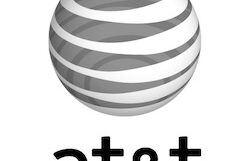Privacy: Who is Selling Your Data? And How to Stop It!
I’m gonna tell you something you probably already know. You have no privacy online…period. Sure you can use a VPN and try to hide from the information collectors but lets face it, they rape you for every micro-byte of information about you they can. Black people have a saying, it’s called “Putting your business in the street.” And keep in mind that every company and every device is tracking you.
Let me give you a simple example; I recently received a phone call from Costco letting me know that the Italian cold cuts I purchased two weeks ago were subject to a recall.
Now, lets talk about how much information they possess to be able to notify me directly. First, since I am a Costco member they have my name, address and phone number. They also have my email address. But here is where the information collection gets really deep. The knew I purchased the product and when. The knew the brand name, the lot number and the expiration date. They also knew the precise date and time and the method of payment, the card number expiration data and security code. And now think about this, they know everything I ever purchased in Costco, ever.
Now did you know that the personal consumer information industry is valued at $200 billion annually and that there are over 4,000 data brokers. These are companies that make a business of buying and selling everything known about you. Now what exactly do they know. I’ll show you and please don’t skip over this because you need to know.
• Social Security Number
• Shopping preferences
• Health information, including diet type, allergies, arthritis, incontinence/bladder problems, diabetes, hearing loss, prostate problems, and visual impairment.
• Marital status
• Financial situation (solvency, creditworthiness, loan amounts, credit cards)
• Date of Birth
• Sex
• Age
• Household income
• Race and ethnicity
• Geography
• Physical characteristics, such as height and weight
• Household occupants (whether an individual has children)
• Telephone number
• Utility usage (electric or gas usage, cable or satellite usage, Internet, television and telephone subscription/service provider and cellular phone usage)
• Magazine subscriptions
• Occupation
• Level of education
• Whether an individual is likely to respond to “money-making opportunities”
• Book preferences
• Clothing sizes
• Habits of all types
• Arrest records
• Lifestyle preferences
• Hobbies
• Religion (affiliation and denomination)
• Homeownership
• Characteristics of residence (size, number of bedrooms and bathrooms, sale price, rent and mortgage payments)
• Type of automobile owned and characteristics of the automobile (year, make, value, fuel type, number of cylinders, presence of vanity or special membership plates)
• Whether the individual responds to direct mail solicitations
• Contributions to political, religious, and charitable groups
• Membership in book, video, tape, and compact disk clubs
• Mail order purchases and type.
• Ownership of products such as electronics, fitness equipment, recreational equipment and vehicles, etc.)
• Pet ownership and type
• Interests (including gambling, arts, antiques, astrology)
• Congressional district
• Social activities and entertainment
• Music preferences
Now one more bit of information you need to know, this is the short list. Some companies like Acxiom claim to have as many as 1,500 individual bits of information on consumers. As a matter of fact Acxiom claims to have records on over 2 billion people in 65 countries. You’re in their data base. Believe it!
But there are ways that you can re-claim some privacy. I cannot guarantee that you will not be tracked by somebody but you can make an effort and that counts for something. Right now the technology industry is under a lot of pressure to stop the relentless data collection that has ripped away every bit of privacy you thought you had. Right now market forces are making privacy a big selling point. People are just tired of the spying game big companies are playing.
Now lets talk about Optery. This company has become very good at removing your name and information from the data bases of data collectors. Yes, this is a paid service and if you ever tried to get these data collectors to remove your information you know its better to pay someone else to do it. Optery scans the most data brokers, more than 150 people-search sites, for your data including your phone number, email address, birth date, family members’ names, locations and much more. Optery also offers a report of your digital footprint or your internet presence to help you regain some privacy.
It seems a little frightening at first because, as the old adage goes, you have to give some to get some. So you have to surrender some information to Optery in order to help them track down your data. But they make it very clear that your information is never sold to a third party. You can give a little or you give them everything they need to really sweep those data bases clean. Don’t expect miracles, they don’t promise that. But they do a good job of showing you the most frightening stuff you never imagined.
This is not a product endorsement because there are a lot of companies that promise to clean up your online profiles and reputations and I can’t knock or promote them. But you need to know that there is help out there to help get some information removed from cyber space. Optery deserves a try.
Now you know.
See also: How to See and Remove All the Data Websites Have On Your iPhone or iPad
How To See How Much Information Google Has on You (and Delete it)
Facebook is Tracking You: Learn How to Delete All Facebook Data






